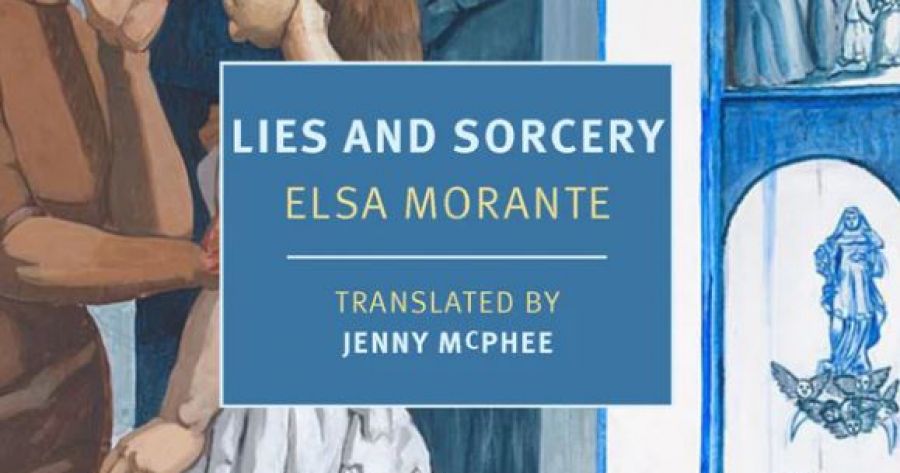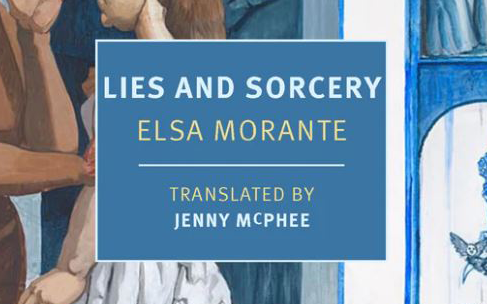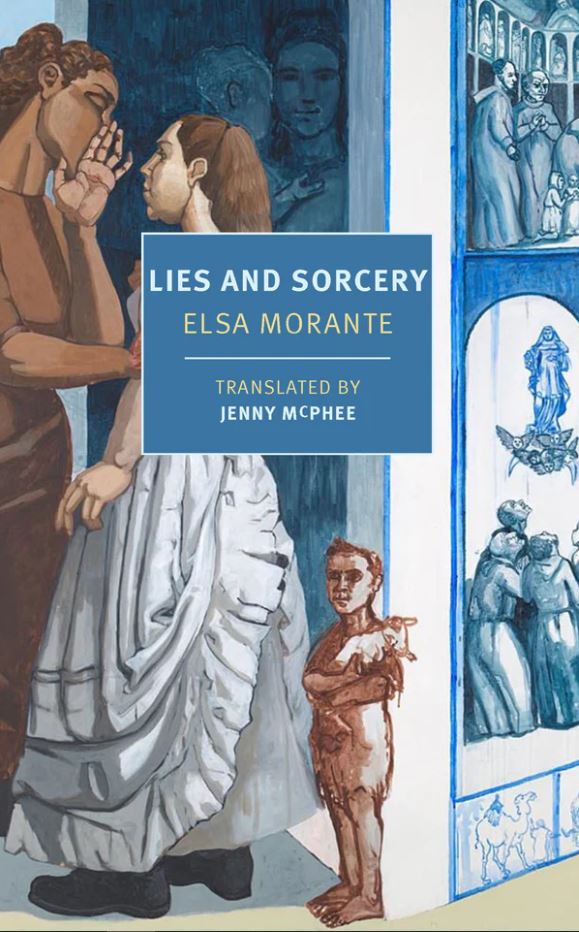
- Free Article: No
- Contents Category: Fiction
- Review Article: Yes
- Article Title: Passing clouds
- Article Subtitle: A delirious and epic Künstlerroman
- Online Only: No
- Custom Highlight Text:
Elena Ferrante declared Elsa Morante’s début novel Menzogna e sortilegio (1948) ‘fundamental’ to her literary formation. The novel is now available unabridged in English for the first time as Lies and Sorcery, in a brilliant translation by Jenny McPhee.
Like Ferrante’s Neapolitan quartet, Morante’s novel begins with the loss of the woman closest to the narrator, propelling a first-person epic to recover a shared past. However, this novel has little of the visceral realism that Ferrante has become famous for in the Anglophone world. It is instead a delirious mix of ghost story, romantic epic, and Künstlerroman that remains almost as difficult to categorise today as when it was published at the height of Italian neorealism.
- Featured Image (400px * 250px):

- Alt Tag (Featured Image): Lily Patchett reviews ‘Lies and Sorcery’ by Elsa Morante, translated by Jenny McPhee
- Book 1 Title: Lies and Sorcery
- Book 1 Biblio: NYRB Classics, US$24.95 pb, 789 pp
- Book 1 Cover Small (400 x 600):
- Book 1 Cover (800 x 1200):
The novel’s narrator, Elisa, whose name recalls the author’s, has been orphaned by her birth parents for fifteen years when her adoptive mother, Rosaria, ‘a fallen woman’ and her ‘only friend’, passes away. For Elisa, the solitude that follows is not unfamiliar. Even when Rosaria was alive, Elisa preferred her room – with its ample supply of fantasy books, legends, ancient epics, loves stories, and lives of saints, as well as a crowd of ghosts, many of whom are dead or long-lost family members – to the capricious company of humans, which, with her tendency to form quick and intense attachments, only caused her pain. Besides, her imagination so well nourished, Elisa had already created an effective double of her friend, ‘equally joyful, exuberant, and magnificent’, but also ‘loyal’, a rarity among the living. The flesh-and-blood version having long been killed off in her mind and its ghost double preferred, Elisa does not even cry upon Rosaria’s death, expecting her happy delusion to assuage all grief.
After returning from a rare outing to bury her guardian, Elisa finds her room deserted, her ghosts having betrayed her. With her ‘fantasises disintegrating’, her old sensitivity returns in full force. She finds herself so raw that, eyes closed, she senses even ‘a passing cloud’. Memory is the only shield now against this harsh reality.
It is not only her own past that returns to console her but also ‘their pasts … those of [her] entire dead family’. When Rosaria was alive, Elisa had been so enchanted by the ghosts that writing, an active and worldly pursuit, did not concern her. Now possessed only by memory, Elisa finds that these tales must be gleaned through the pen. As she begins to write, the faces of her ghosts (with ‘the voracious, unrelenting movement of their sharp tongues’) reappear out of the corner of her eye. If she lifts her eyes from her paper, they vanish, returning her to isolation.
Elisa inherits the ‘disease of delusion’ from her biological family and is, by her own admission, the ‘sickest … of all’. Despite this insistence on her unreliability, as we delve into these ancestral stories, however mythical, the relationship between truth and falsity becomes increasingly uneasy. Elisa’s characters, though drenched in fantasy, are realistically drawn. Morante seems to be asking: how do we tell the difference between consoling fantasy and true fiction? Elisa recognises a distinction here when she wonders whether her family members, in getting her to write, are ‘feeling guilty for having sickened the sensible Elisa with their fabrications’ and ‘now want to cure her’.
Rosaria’s death, and the act of writing that it produces, throws Elisa out of the Edenic paradise she had created. However, the tension between reality and fantasy is never fully resolved. In one ancestral tale, Edoardo, Elisa’s second cousin, falls into a feverish illness that gives him a taste for the ‘miraculous’ quality of death. Upon waking, though his fear of mortality does not leave him, he finds that his life can never ‘be as rich as his lingering dreams’. Is Elisa’s writing a lingering dream? Her delirium strikes her readers as deeper than consoling fantasy, but her spark of imagination seems brightest in its separation from reality. The genre of the romantic epic never fully fades from view.
Morante furnishes Elisa, her fictional double, with the money and private space that Virginia Woolf argued were necessary to write. She also removes Elisa from (patriarchal) society. Though Elisa inherits her name ‘de Salvi (literally ‘of the Saved’) from her father, it seems that her namesake most obviously applies to the women in Elisa’s life, whose traumas, torments, and egoistic fantasises are wrested from a fading history.
Ferrante says that it was in this work that she first discovered that ‘an entirely female story – entirely women’s desires and ideas and feelings – could be compelling’. Elisa may be delusional, but her imagination is her own. Elisa’s maturing as a writer parallels Morante’s own artistic development, as the novel acts to transfigure self-absorbed, private fantasy into crystallising and empowering female narrative.
Though partially written while Morante, who was Jewish, was in hiding during World War II, the novel contains little of the trauma its author lived through. This is found later, in Morante’s most popular novel, History (1974), which is now out of print in English.
The setting of Lies and Sorcery is ambiguous and possesses no direct commentary on the world-forming sweep of her epoch. Though Elisa’s native city is almost always ‘drenched by a full southern sun’, suggesting Sicily, it lacks sufficient detail to satisfy as literary tourism. Moreover, the sprawling quality of the work may disappoint Ferrante fans looking to find another page-turner like the Neapolitan quartet. However, this disorientating and dreamy work, with its fraught relationship to reality, will reward readers compelled by literature that ventures inwards.



Comments powered by CComment